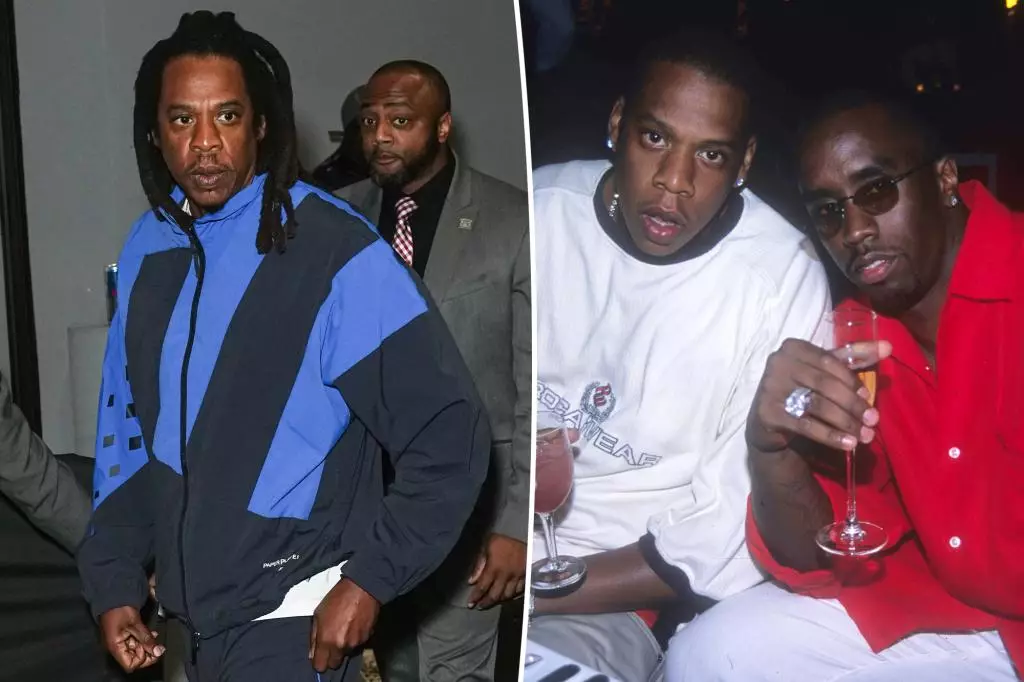In recent developments within the high-profile case involving Jay-Z, born Shawn Carter, and Sean “Diddy” Combs, a New York judge has granted a significant ruling that allows the plaintiff to remain anonymous while pursuing her allegations of rape. This decision is notable not only for its legal implications but also for how it highlights the complexities entwined in cases involving celebrities and allegations of serious offenses.
The decision by Judge Analisa Torres indicates a focused approach to ensuring the plaintiff’s protection and mental wellbeing, which stands crucial in such sensitive litigation. The judge acknowledged the emotional toll that disclosing one’s identity could inflict on the individual, especially given the psychological effects claimed by the accuser, including depression and post-traumatic stress disorder (PTSD). Such considerations go beyond mere legal formalities; they strike at the heart of human dignity and the need for safe spaces for survivors to seek justice without further trauma.
Judge Torres’s ruling allows the plaintiff to proceed under the pseudonym “Jane Doe” while exemplifying a nuanced understanding of the judicial system’s responsibilities. The choice to permit anonymity reflects a balancing act where the interests of the defendant do not overshadow the plaintiff’s rights to privacy and emotional safety. As the court emphasized, maintaining anonymity at this stage serves to protect the plaintiff from potential retaliation and public shaming, which is unfortunately common in cases of sexual assault.
Moreover, the sharp rebuke directed at Jay-Z’s legal team underscores the court’s commitment to enforce appropriate decorum within legal proceedings. The judge’s admonition against the combative and inflammatory tactics of the defense demonstrates a clear disapproval of strategies that may seek to undermine the plaintiff’s position rather than engage substantively with the allegations at hand. This serves as a reminder that the judicial process must also prioritize respect and sensibility amidst controversies.
The allegations date back to the 2000 MTV Video Music Awards afterparty, where the plaintiff claims she was assaulted at a young age. Details of the accusation describe a disturbing scenario wherein she was allegedly drugged and subsequently raped by both Jay-Z and Diddy, who supposedly did not intervene. The gravity of these accusations demands careful consideration, as they involve not just the legal ramifications but also profound moral and societal implications.
In the wake of these claims, Jay-Z has publicly denied the allegations, categorizing them as “heinous,” while also launching criticisms against the plaintiff’s legal representative. Such public denouncements often add layers of complexity to ongoing legal battles, feeding into the media narrative and public discourse surrounding the individuals involved. The interplay between personal reputations and legal realities forms a significant aspect of how celebrity cases unfold in the public eye.
As this case unfolds, it reflects larger societal issues regarding assault, consent, and accountability, especially as they relate to public figures. The implications extend beyond the individuals directly involved, impacting how similar cases are viewed and treated within the legal system and society. With Diddy currently entangled in other serious legal troubles, including allegations of sex trafficking, the intertwining of these high-profile narratives illustrates a troubling trend where celebrities face multiple allegations, often prompting discussions about power dynamics and the culture of silence surrounding sexual misconduct.
Furthermore, the legal arguments and proceedings in such high-stakes cases often serve as a microcosm for broader systemic issues. They invite scrutiny on how the legal system handles sexual assault cases, the treatment of plaintiffs who come forward, and the potential biases against those accused. Ultimately, the resolution of these proceedings will not only impact the individuals at stake but may also inform public perceptions about justice, celebrity culture, and the society that supports or condemns it.
As the case continues to evolve, it stands as an emblematic saga intertwining law, ethics, and celebrity, a reminder of the complexities faced by survivors of assault in their pursuit of justice. The judicial system’s role in navigating personal vulnerabilities alongside allegations of significant gravity cannot be understated. How the case resolves will resonate far beyond the courtroom, influencing societal views on consent, accountability, and the lived experiences of those impacted by sexual violence. The journey toward justice in such cases remains fraught but necessary for societal healing and progress.

